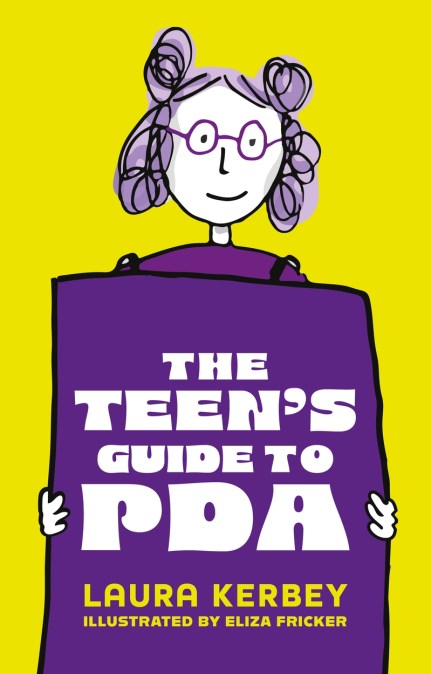Being a teenager is tricky at the best of times. Your body is changing and hormones are raging around your body – adding PDA to the mix makes this even harder! You may often feel misunderstood by others, and find it hard to understand yourself too.
Whether you’ve just been diagnosed with PDA -or are a seasoned PDAer keen to know a bit more – this warm and wittily illustrated guide will give you a better understanding of your amazing brain and why you are so good at some things, but find other things tricky. It will help you to advocate for yourself better, understand your anxieties, manage rejection sensitivity dysphoria, explain to your family and friends and others what you need (and what drives you up the wall) – and navigate school or alternative education.
Whether you’ve just been diagnosed with PDA -or are a seasoned PDAer keen to know a bit more – this warm and wittily illustrated guide will give you a better understanding of your amazing brain and why you are so good at some things, but find other things tricky. It will help you to advocate for yourself better, understand your anxieties, manage rejection sensitivity dysphoria, explain to your family and friends and others what you need (and what drives you up the wall) – and navigate school or alternative education.
Newsletter Signup
By clicking ‘Sign Up,’ I acknowledge that I have read and agree to Hachette Book Group’s Privacy Policy and Terms of Use
Reviews
I absolutely adore this book! Any young person (who is or thinks they are PDA) reading it will learn so much about PDA, about themselves and about life, in such a way that they will want to keep picking it up. I couldn't put it down I enjoyed it that much. It's informative, supportive, practical and so encouraging. But it's also fun too and it doesn't make any demands of its reader either. It's an invaluable book in this era where there are so many pressures and demands on teenagers like never before; Laura gives sound and sensible advice in a very careful and thoughtful manner that totally respects the reader's autonomy and authenticity.
Eliza's illustrations are just perfect, evocative and they really help to sensitively communicate the issues tackled, some of which are tricky issues for young people. Together Laura and Eliza have created something so very special and I highly recommend every parent of a PDA teenager buy this book.
This guide has truly been a guiding light, providing invaluable support in my role as an emotional mentor. Navigating the intricate world of Pathological Demand Avoidance is no easy task, but this guide offers practical insights and strategies that make a world of difference. From deciphering triggers to fostering effective communication, A Teenager's Guide to Pathological Demand Avoidance" is a must-have for anyone seeking to better understand and empower teenagers with PDA
How fantastic to have a neurodiversity-affirming resource to send PDAer teens to!
Written in a voice which very obviously understands PDA and treads that difficult line of being accessible and teen-friendly without being patronising or unintentionally demanding.
In other words, the best of both worlds. There will surely be some "That's me!" moments when reading this book.
From the first moment I picked up this book, I couldn't put it down!
I am 16 years old, and autistic (with a need for autonomy and self directed learning), and everything in this book made so much sense. The book was super relatable and I especially loved the fact that Laura and Eliza used quotes of other teenagers, slotting them in in a continuous and flowing manner. The book is written in a very friendly and conversational way, which demonstrates how great an understanding they have of autistic children (especially with PDA), and our needs. I also appreciate the illustrations, which evoke an emotion, and tell a story as well!
I highly recommend this book, both for teenagers either newly diagnosed with PDA and looking to learn more, or teenagers who would just like affirmation and reassurance that they are not alone. I also feel that this book would greatly benefit parents as well, since it would give them a stronger understanding of what their child is going through.
This book creates opportunities for young people to learn more about themselves and feel like they are not alone in how they think. I myself can relate to many of the stories told by the individuals who were reviewed within this book.

